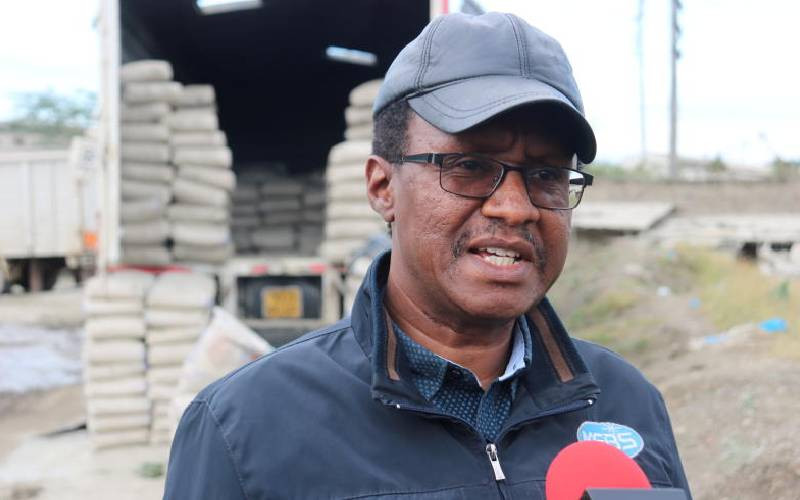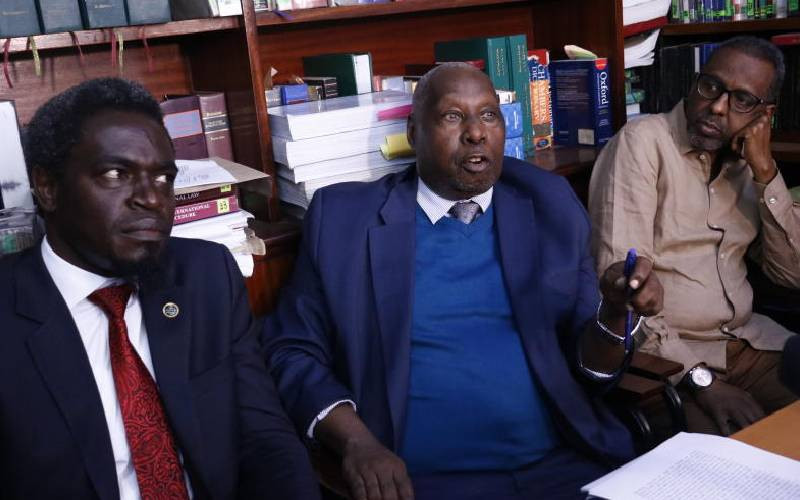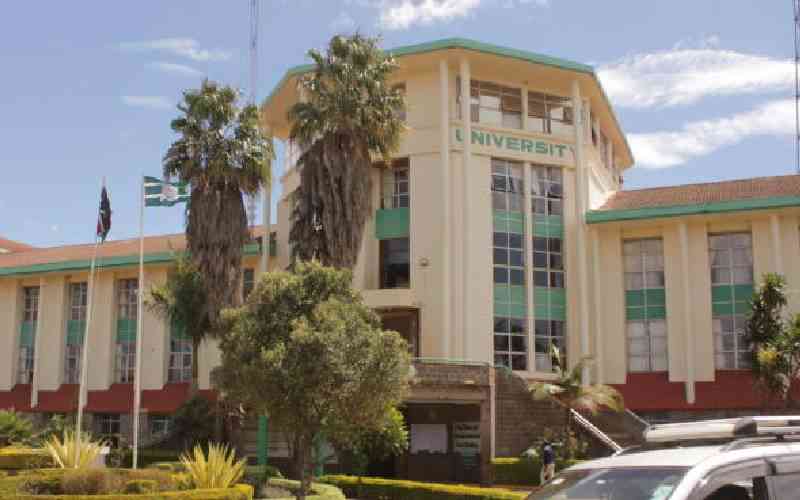
An audit by the Auditor General has revealed that the Ministry of Mining and Petroleum has not developed sufficient measures to monitor artisanal mining operations across the country.
In the recent incident in Sigalagala mining shaft in Ikolomani, Kakamega County, nine miners escaped death by a whisker while three were trapped.
Due to the rising death cases, the office of the auditor general conducted a performance audit on the state of artisanal mining between 2016/17 and 2021/22 and published the report in November last year.
In the report, Auditor General Nancy Gathungu noted that besides the delays in the implementation of provisions to regulate artisanal miners, inadequate planning and resources had impacted the monitoring of artisanal mining operations.
"In the absence of proper mechanisms for monitoring artisanal miners' activities, they continue to engage in unsafe mining methods that endanger their lives, cause pollution and degradation of the environment," Gathungu noted.
During the period under review, 60 deaths were reported around the country due to poorly constructed mining shafts, among other reasons.
"The accidents were mostly due to collapse of poorly constructed shafts, suffocation due to lack of oxygen in the shafts and drowning. For the period of 2016/17 to 2021/2022, there were a total of 60 deaths reported - 27 in Kakamega, 15 in Migori, 14 in Kisumu and three in Taita Taveta regions," the report noted.
It was alleged some deaths were not reported as miners feared that operations in the mines would be negatively affected if all accidents were reported.
- Auditor General: Sh9b was swindled at NHIF
- Gold in the blood: Study highlights its potential role in human health
Keep Reading
The audit revealed there was a delay in establishment and operationalisation of artisanal mining committees whose role is to advise the director of mines in granting, renewal or revocation of mining permits.
"The audit revealed that only nine committees had been gazetted at the time of the audit. These were Migori, Kakamega, Vihiga, Taita Taveta, Kitui, Turkana, Kisii and Narok artisanal mining committees (AMCs)," the report revealed.
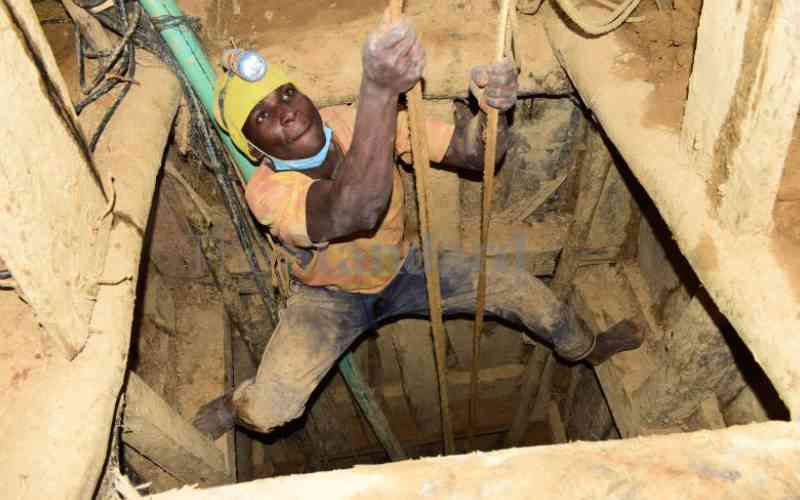
The delay in the formation of AMCs was attributed to delays in appointment of nominees to the committee by various institutions that are represented in the committee.
However, it was further established in the nine counties which had gazetted the committees, the committees were yet to commence operations due to lack of budgetary provisions and guidelines.
The ministry was also found to have delayed in mapping and delineation of land, which was a prerequisite for the declaration of an area as an artisanal mining zone.
"Out of the seven regions sampled, mapping of artisanal miners had only commenced in Kakamega and Migori regions, which are areas of high concentration of artisanal miners. However, at the time of the audit, the process was yet to be completed. The delays were attributed to inadequate personnel and inadequate funds," the report showed.
The report revealed understaffing in the directorate of mines had severely affected monitoring of mining activities.
Though the directorate has a staff establishment of 235, the total staff by the time of the audit was 89, which represents a 37 per cent staffing level and a deficit of 146 staff.
The report revealed that there were 11 inspectors of mines and explosives working at the head office and regional offices, whereas the position had an authorised established 123 staff.
The directorate did not have chief inspector of explosives and chief superintendent inspector of explosives, both officers at head office.
The audit established that Migori and Kitui regional officers did not have drivers and were dependent on other government institutions who were not always available when required.
"Although each regional office had been allocated a vehicle, interviews with regional mining officers indicated that the vehicles were old and frequently broke down. At the time of the audit, the vehicles allocated to Taita Taveta, Kitui and Kisumu regional offices were grounded," it showed.
The audit also revealed that the ministry did not have a clear mechanism for field officers supervision and reporting and though the teams from head office were supposed to undertake field visits, they were hampered by lack of funds.
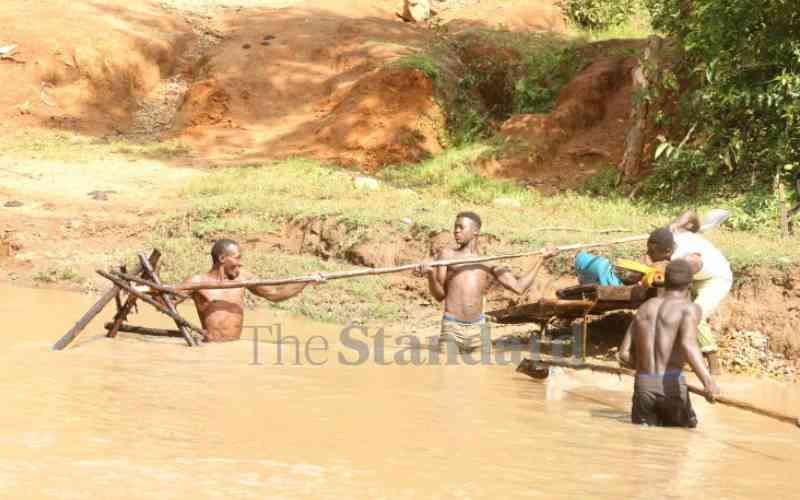
During field inspections, the audit team observed that mercury was used in processing of gold and, despite being a hazardous chemical, miners handled it with bare hands.
In addition, miners in the sampled regions did not wear gas masks when roasting goal amalgam to separate gold from mercury.
"Therefore, their health was at risk due to inhaling toxic mercury fumes produced during the process. According to the World Health Organisation, mercury exposure may have serious effects on the nervous, digestive and immune system," they noted.
It was further observed that the effluent from mining sites was disposed of in shallow pans and, in some instances, it flowed to the nearest rivers and streams.
Due to the failure to issue artisanal miners with mining permits, the government could not assess and collect revenue from artisanal mining activities.
"There was no system in place for tracking minerals bought by middlemen, raising the risk of the minerals being smuggled out of the country without revenue due being paid to the government," the report noted.
In its recommendation, the Auditor General asked the ministry to fast-track the formalisation and regulation of artisanal mining operations and ensure that artisanal miners are issued with permits.
"For effective monitoring of artisanal mining activities, the ministry should develop a robust and clear mechanism for supervising the work of its field officers," the report recommended.
Other recommendations to the ministry include operationalisation of Voi Gemstone Value Addition Centre, training of artisanal miners on health and safety practices and environmental conservation, among others.
 The Standard Group Plc is a multi-media organization with investments in media platforms spanning newspaper print
operations, television, radio broadcasting, digital and online services. The Standard Group is recognized as a
leading multi-media house in Kenya with a key influence in matters of national and international interest.
The Standard Group Plc is a multi-media organization with investments in media platforms spanning newspaper print
operations, television, radio broadcasting, digital and online services. The Standard Group is recognized as a
leading multi-media house in Kenya with a key influence in matters of national and international interest.



